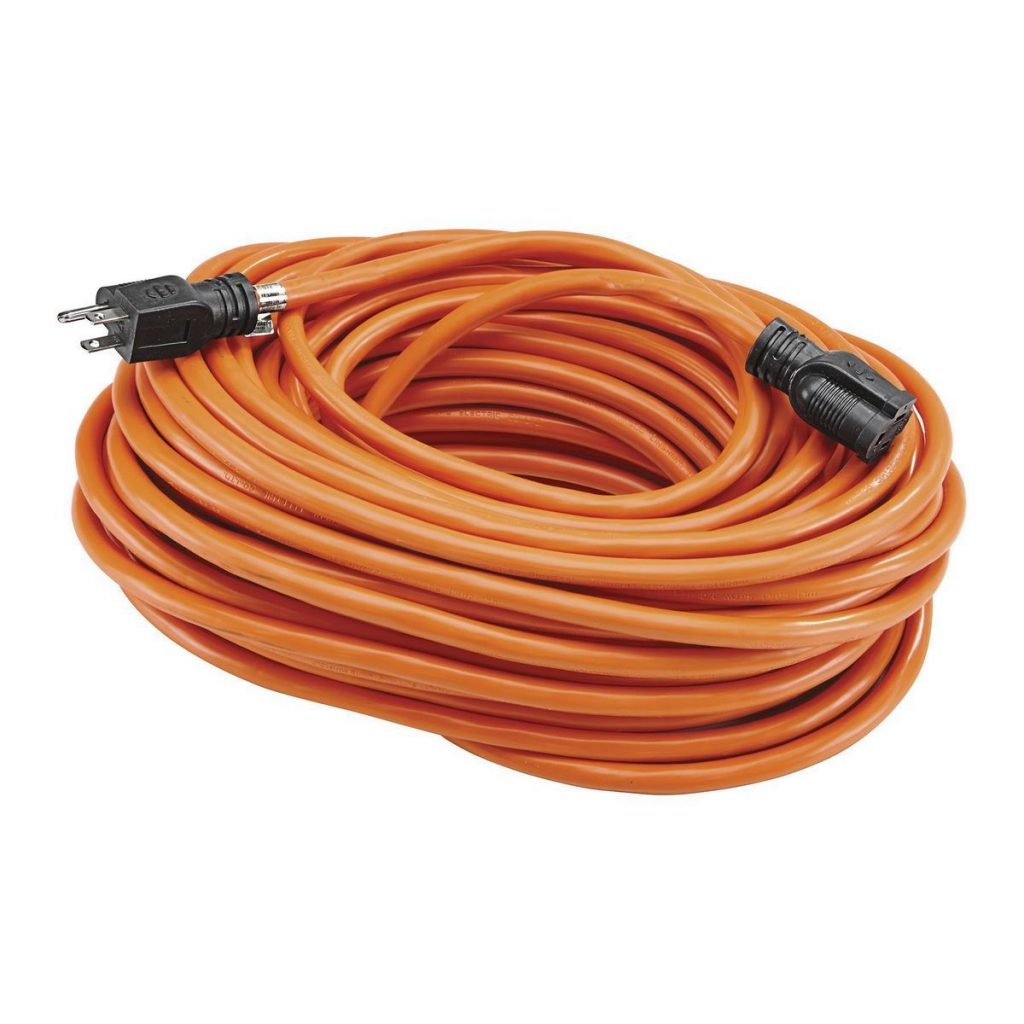Extension cords make life easier for people since they are able to run power to unreachable places within the house. However, extension cords can have live wires which are dangerous and if you have kids around the house you can be forced to bury the extension cord. However, the question most people often ask is “Can you bury an extension cord”. Below we discuss if that is possible and the necessary steps you need to take.
Table of Contents
Can you bury an extension cord?
Yes you can bury an extension code but, it should be for a temporary period of time and you also have to adhere to the rules and regulations set by the National Electric Code of the U.S states. The code stipulates that if you are burying an extension cord you should ensure that you use a conduit. Furthermore, extension codes cannot be buried for a long period of time so you need to constantly remove them after some time and call an electrician to do permanent wiring on your house. When burying extension cords in the ground make sure you are not just burying them 18 inches into the ground as this could cause problems for you in the future.
Can you bury an outdoor extension cord?
Yes you can bury an outdoor extension cord however, you need to be cognisant of the fact that outdoor extension cables cannot survive unfavourable conditions if they are buried directly into the ground. Therefore, always make sure that you cover the outdoor extension cord before burying it into the ground. If you bury your outdoor extension cord, directly into the ground, the elements will chew through the insulator as time goes on and this can cause problems for you. Furthermore, it is important to know that burying an outdoor extension cord should not be a permanent decision that you make. This is because out door extension cables are not designed to withstand unfavourable conditions. Therefore, you are always going to need to replace the extension cable over time. UF cables can be buried into the ground so use them instead of extension codes. This is because, their insulator was designed to withstand unfavourable conditions when buried into the ground.
Can you bury a wire without a conduit?
The answer to this question is dependent on the type of wire you are using but, generally you can bury some wires without a conduit. If the wire is a direct burial rated wire then you can bury it directly without a conduit. However, if it’s not, then you need to put a conduit. The conduit helps to provide an extra layer of protection to the wire. When burying a wire 18 inches deep into the ground you will need a conduit even if the wire is direct burial rated. This helps to ensure that the wire does not come into direct contact with water.
Can I use an extension cord permanently?
The extension cord was designed for temporary use so you should never use it permanently. The National Electric Code (NEC) clearly states that extension codes cannot be used in place of permanent wiring. This is because extension cords cannot withstand unfavourable conditions and because of that they malfunction easily. If you have been using an extension cord for more than 30 days, then there is need for you to contact your electrician and have permanent wiring done at your house. It is dangerous to have an extension cord that runs through openings on your door, wall or ceiling. Therefore, always call an electrician to help you fix such problems within your house.
Is it illegal to bury an extension cord?
The answer to this depends on how you have buried the extension cord. This is because the National Electric Code (NEC) is the one that sets the benchmark for the rules and guidelines for safe electric installation, design and inspection. So they have specific standards on how an extension cord can be buried. If you bury an extension cord the wrong way then it will be deemed as illegal however, if you do it the right way it will be deemed as legal. This means you need to be familiar with the NEC guidelines before you bury any extension cord.
Things to consider before burying an extension cord
If you are planning on burying an extension cord you need to consider if this is a permanent or temporary decision. This is because NEC only allows people to bury extension cords for a temporary period of time. This means if you were planning on burying the extension cord for a prolonged amount of time you should just resort to wiring your house as this is what is expected. You also need to consider the depth you are going to use to bury the extension cord. If you are aiming for anything below 18 inches then it is illegal and you must be willing to dig a little more. Furthermore, you should always consider using a conduit before burying an extension cord. This is because it provides an extra layer of protection to the extension cable. Lastly, you need to consider the durability of your extension cable. Naturally extension cables where not designed to be buried under the ground, this is because their insulators are not thick which makes it easier for the elements to chew through them thus leaving their wires exposed.
Types of extension cords you can bury
UF cables are the best extension cables to bury. This is because the material used to design these cables is water resistant and has a strong durability level. Therefore, if you are planning on burying an extension cord you need to buy UF cables and not the regular extension cords.
Conclusion
Burying an extension cord is a great way of ensuring that you do not have any live wires running across your yard. However, it’s important to remember that burying an extension cord should not be a permanent decision that you make and you need to abide by the rules and regulations set out by NEC.

